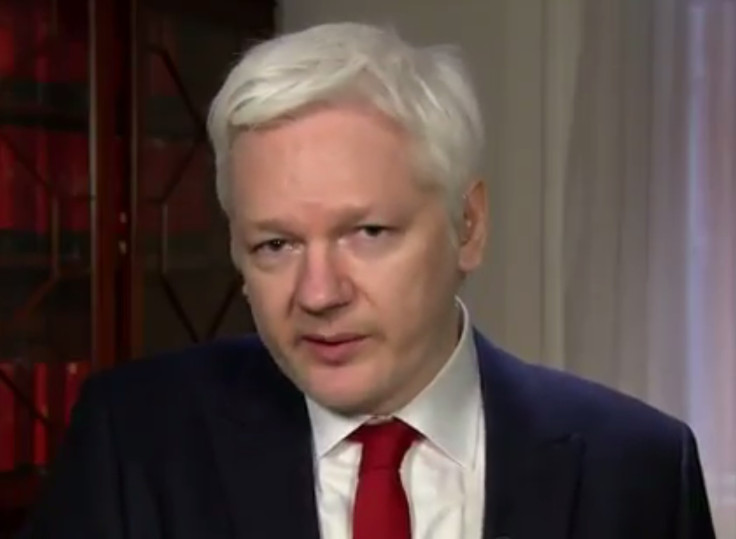Julian Assange on US extradition: 'The ball is in Department of Justice's court'
Wikileaks founder has yet to leave the Ecuadorian embassy, after Chelsea Manning was given clemency.
Julian Assange has said his possible extradition to the US is in the Department of Justice's (DoJ) hands.
It follows his claim in the last days of the Barack Obama presidency that he would hand himself into US authorities if whistleblower Chelsea Manning was given clemency.
Obama commuted Manning's sentence on 17 January. But Assange has remained in the Ecuadorian embassy in London, where he has sought asylum for the last four and a half years.
Appearing in a televised interview on ITV's Peston on Sunday, Assange said securing Manning's clemency was "matter of chess" and that he was waiting for certain conditions to be met before he would hand himself over.
Assange said: "We have approached the DoJ before the election before the election saying, 'Are they going to drop this case?'
"We say, 'It's unconstitutional, it's unlawful. It should not be pursued. What are they going to do?'
"We haven't heard back from the DoJ yet. The ball is in their court. If to settle the matter it requires going to the United States, where certain circumstances and where my rights are protected then that's something we want to discuss, but the ball is in the DoJ court."
Following Assange's offer to be extradited, he has repeatedly faced questions about when he would hand himself in.
When challenged on Australian television by presenter Waleed Aly, Assange hit back and said, "I'm not a complete idiot."
He said: "We had a major strategic victory in liberating Chelsea Manning – the most significant alleged whistleblower in the last 10 years – but of course saying I'm willing to accept extradition doesn't mean I'm saying, I'm willing to be a complete idiot and throw all my lawyers away."
The DoJ has yet to comment on Assange's case.

© Copyright IBTimes 2025. All rights reserved.






















